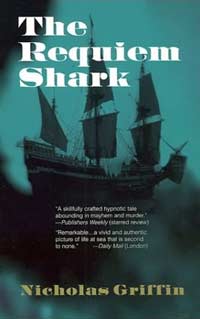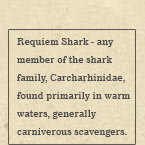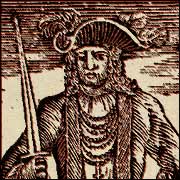 The Requiem Shark
The Requiem Shark
by Nicholas Griffin
Based on the final voyage of the most successful captain in the history of piracy, The Requiem Shark is the tale of William Williams, a pampered young man forced into service aboard the ship of the dreaded Bartholomew Roberts - also known as Black Bart. With a level of education that sets him apart from his illiterate shipmates, Williams becomes the biographer of the captain - and slowly grows to manhood in the violent world of piracy, struggling to retain his humanity while sailing the blood red seas. A graphic, rousing literary debut, rich in historical detail, this novel will transport readers to a distant age when all a man needed was the wind at his back, the open seas, and the feel of cold, sharpened steel in his hands.
Berkley Trade, ISBN-10: 0425181588
“Relentlessly thrilling ... fresh, powerfully evocative prose.”
—San Diego Union- Tribune
“Colorful characters and exciting adventures abound in this novel that just might be the beginning of a new series to take up where Patrick O’Brian left off.”
—Dallas Morning News
“Reminds me of the sweep and majesty of Moby Dick ... (Griffin) pulls readers onboard the storm-tossed deck, where we smell unwashed bodies, hear the screams of seagulls and even savor succulent fresh fruit from tropical islands ... a gripping novel ... a fine literary work.”
—Rocky Mountain News
“A skillfully crafted hypnotic tale abounding in murder and mayhem.”
—Publishers Weekly (starred review)
“Remarkable ... a vivid and authentic picture of life at sea that is second to none.”
—Daily Mail
“Griffin excels at describing the physical reality of disease, death and sex with pox-ridden whores. His gripping accounts of the disastrous effects of cannonball injuries and of the ship’s inexpert surgeon as he severs limbs with a hacksaw while slugging at a bottle of rum will cause many a reader to blanch. The atmosphere of lawlessness and the period detail are faultlessly rendered.”
—The Independent


